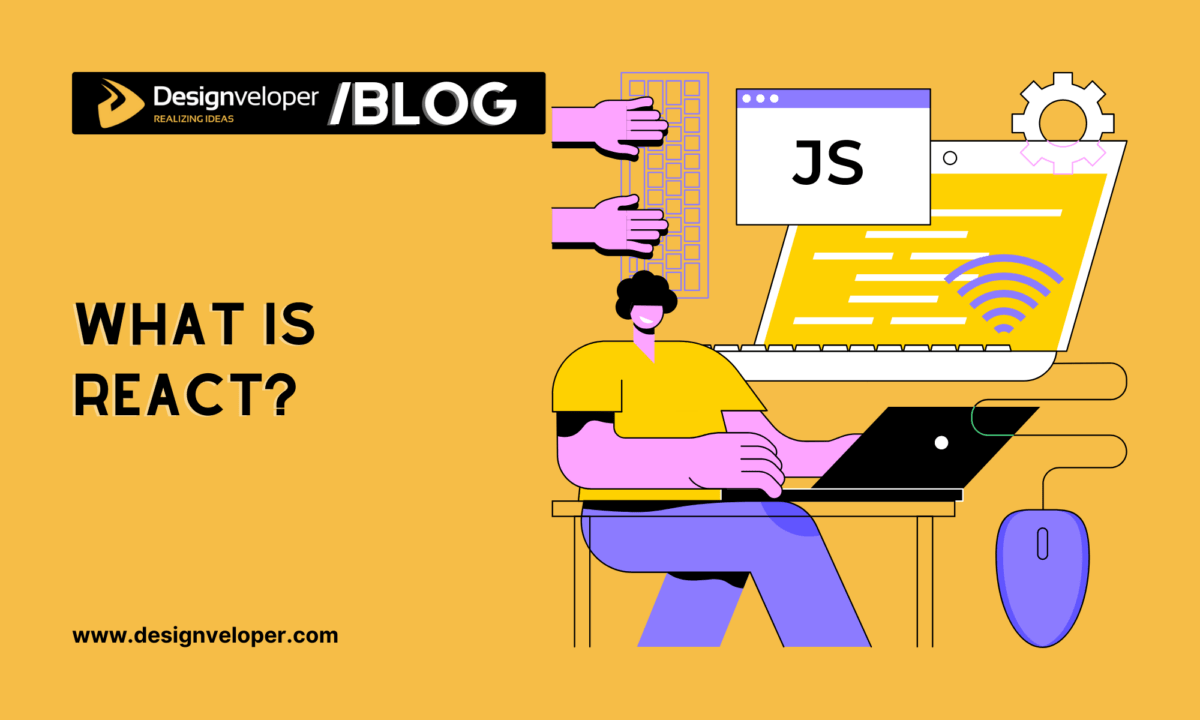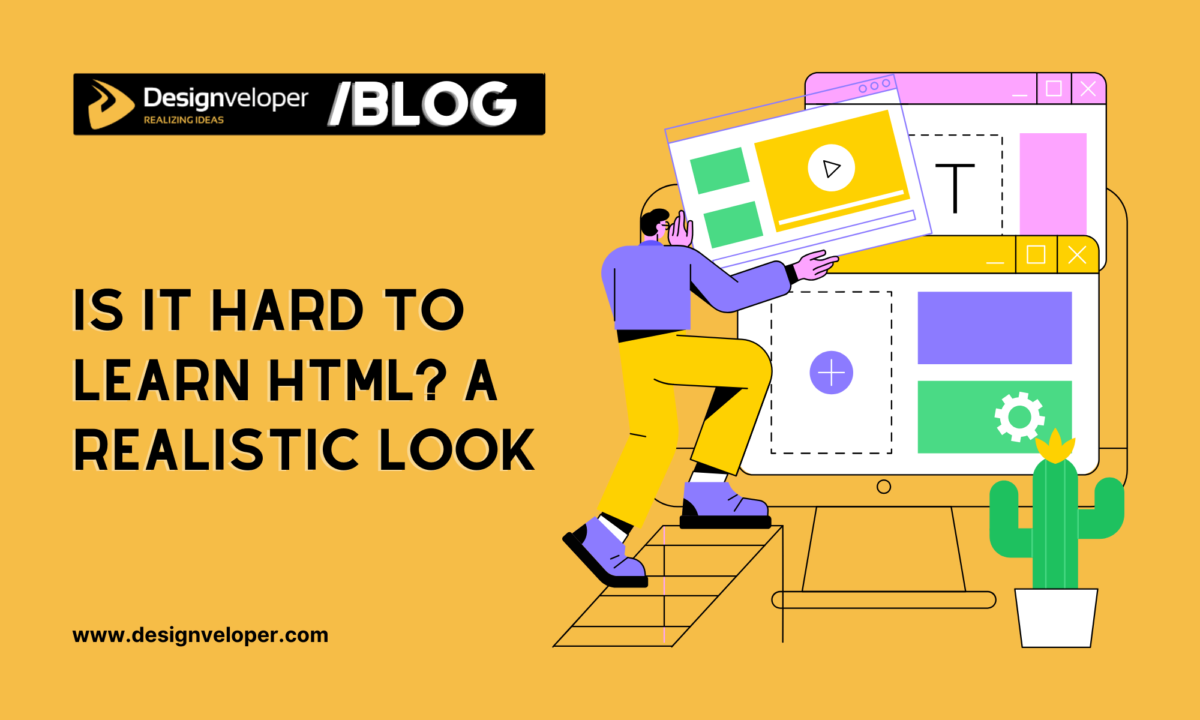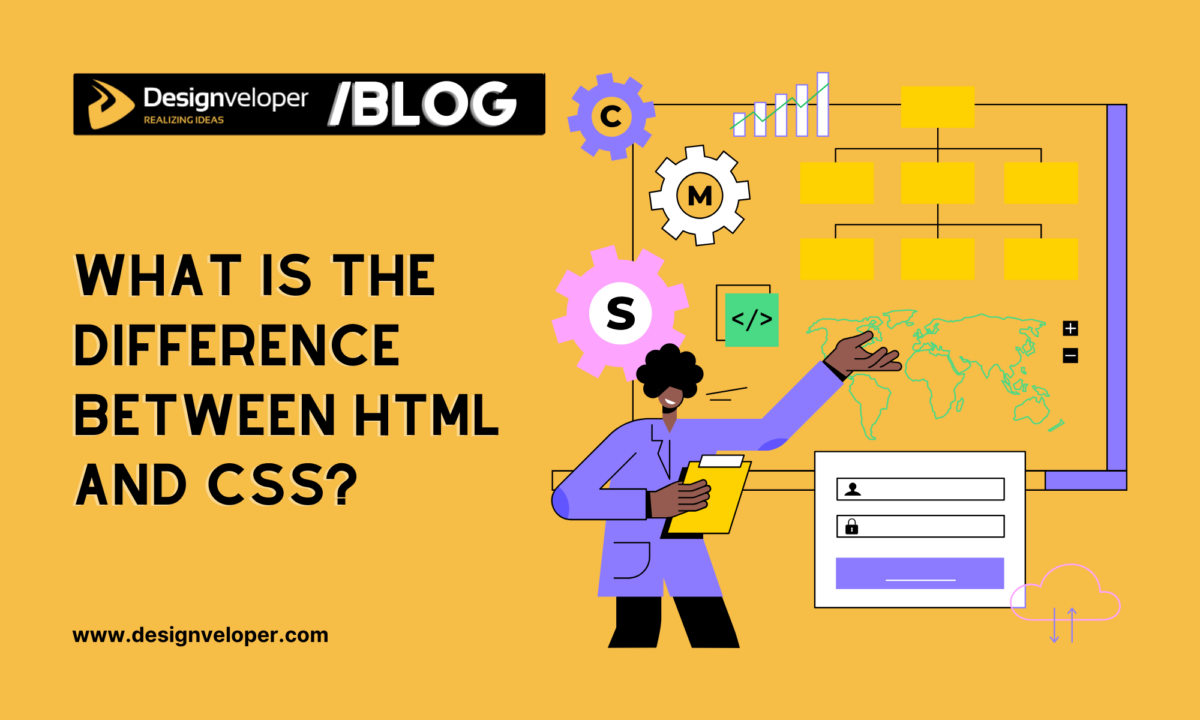
Nowadays, PHP (or PHP: Hypertext Preprocessor) is not as famous when compared to other common scripting computer programming languages like Python and JavaScript. However, don’t you dare state that this language is dead! According to W3Tech, 75.7% of all websites use PHP as their back-end language. So, in this article, we will give you the 5 best PHP courses to help you learn by yourself!
Why Are There So Many Sites Using the PHP Programming Language?
First of all, PHP is free and open-source. Furthermore, it supports a wide range of databases and also has a bunch of useful text-processing features. At the same time, this scripting language can be used on various types of operating systems and web servers.

These reasons, therefore, have successfully backed up the main idea of why two of the biggest systems on the Internet – WordPress and MediaWiki (the software behind Wikipedia) are still using PHP. And to our surprise, there are 43.5% of websites on the Internet are created on the platform WordPress.
FURTHER READING: |
1. Meteor Deep Dive: Reactive Programming With Tracker |
2. 10 Free HTML5 Resources for Beginners |
3. Multiplayer Game With Unity3D and Meteor |
The 5 Best PHP Courses that You Should Consider
Contrary to our belief, 18.2% of developers are still leveraging PHP for their programming tasks. Accordingly, more than 29% choose Codelgniter as the most prevalent tech skill in the PHP tech stack, followed by WordPress with over 26%.
So, the question here is: why do various developers still use this programming language, especially for website development? It’s because PHP is easy to learn and use. In other words, developers don’t have to face a steep learning curve when started. As a result, freshers should go for this because of its high demand and simplicity.
To help you get started with this language and become a PHP developer in no time, here are five courses you must try now.
1. Beginner PHP and MySQL Tutorial
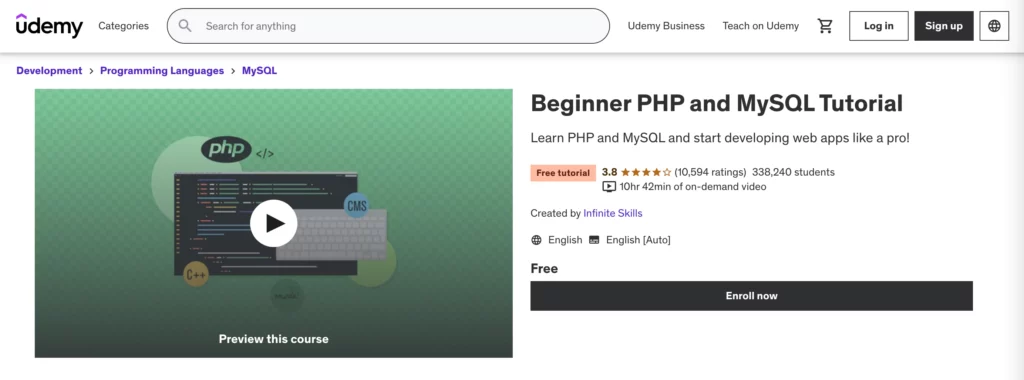
As the name has already told, this course not only presents you with the knowledge of PHP but it also helps you get familiar with MySQL (this is a common database management system that can function as a database solution).
If you are a beginner and have a limited budget but still want to be a professional PHP developer then this short and free course is for you. By short, I mean you only have to spend 10.5 hours watching all the lectures. That sounds easy, however, there are more than 150 lectures that will teach you various practices from how to download and install tools as well as frameworks to build a template page.
When finished this course, you will receive a certificate of completion. And in general, you will learn:
- How to install and download different PHP and MySQL tools or frameworks.
- Method to work between a UI and a database back-end.
- How to configure settings to match your needs.
- How to plan and apply MySQL and PHP to several examples and work to carry out your own project.
Rate: 4.5/5. (minuses 0.5 since this course still uses the old version of XAMPP).
Recommended reading: IT Courses for Tech Leads: Enhancing Management and Leadership Skills
2. Building Web Applications in PHP
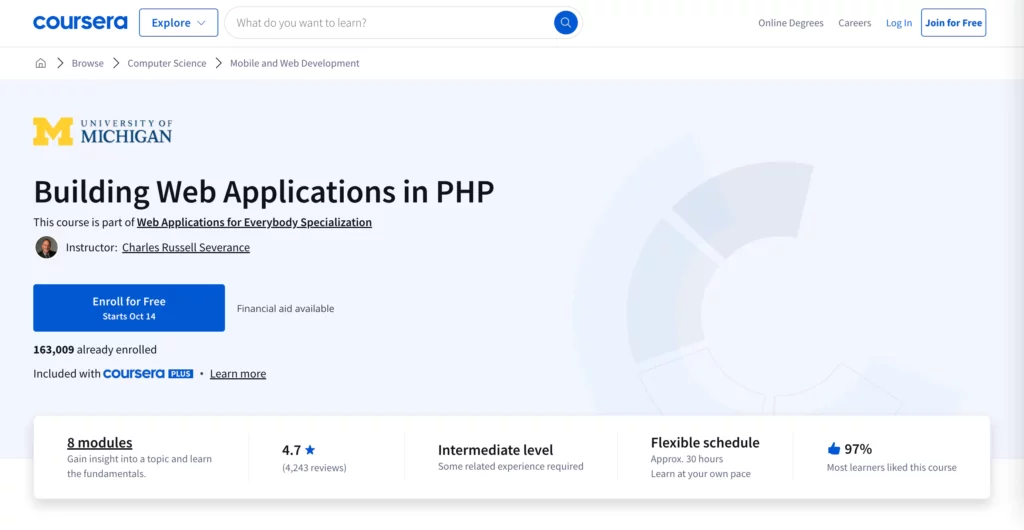
If you’re eager to understand every practice of PHP, this course will help you a lot. It introduces you to the core of web applications as well as PHP to be able to work with it more effectively. But before all of this, you will gain more basic knowledge of HTML and CSS. As a result, “Building web application in PHP” will lay some solid foundations for newbie developers.
At a quick glance, people at Designveloper believe that this course has covered all the important and basic lessons on how to practice PHP better.
To become a junior PHP developer will need about 18 hours to finish the course. They also suggested that this course should be learned in 8 weeks. Let’s see their syllabus:
- Week 1: Introduction to Dynamic Web Content
- Week 2: HyperText Markup Language (HTML)
- Week 3: Cascading Style Sheets (CSS)
- Week 4: Installing PHP and SQL
- Week 5: Introduction to PHP
- Week 6: PHP Arrays
- Week 7: PHP Functions
- Week 8: PHP and HTML Forms
Reviewers stated that this course is suitable for both beginners and experts which means everyone can gain a considerable amount of knowledge from it.
Rate: 4.5/5. (Unfortunately, you cannot edit the assignment once it’s submitted)
3. PHP Tutorial for Beginners: Learn in 7 Days
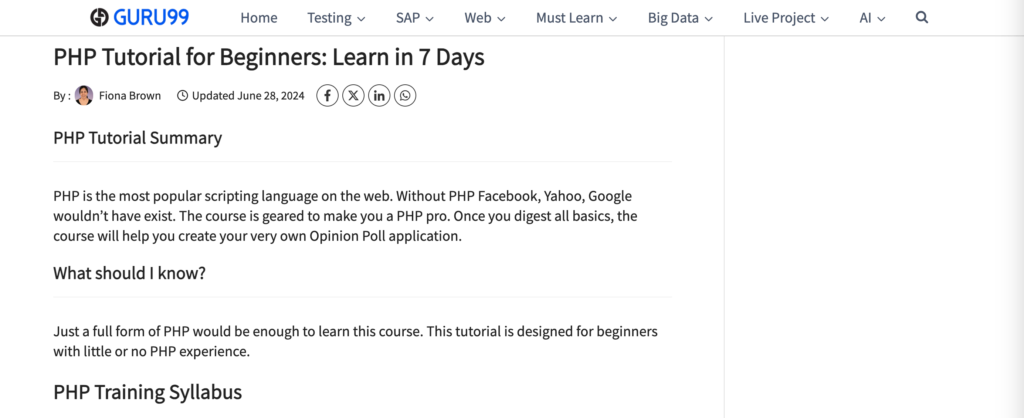
Don’t just count on knowledge, you need to practice as much as possible.
And with this recommended course, you will get down to real work at the end of it. Some projects that might need your code are creating an opinion poll application using PHP, creating an Ajax-based PHP application, etc.
On the other hand, this 7-day course also provides you with fundamental knowledge, basic and advanced practices, and last but not least, the way to deal with PHP in real scenarios. Furthermore, they give you 100 PHP questions and answers to prepare for interviews in the future. Another upside of this course is that its tutorials are short and concise. For that reason, you can absorb knowledge quicker and easier.
In this course, you will learn:
- PHP Fundamentals: this session talks about basic information about PHP and some important activities when using this language.
- Logics: control structures, loop, PHP string, functions, etc.
- Advanced practices: MAIL, database access, OOPS in PHP, using date, security functions.
- Creating a PHP project: using PHP to create opinion poll applications.
- Bonus: PHP vs JavaScript, Laravel Framework, interview questions, answers, etc.
Rate: 4/5 (A bit too short when compared to other PHP courses).
4. Complete Beginners Guide to Learning PHP 5
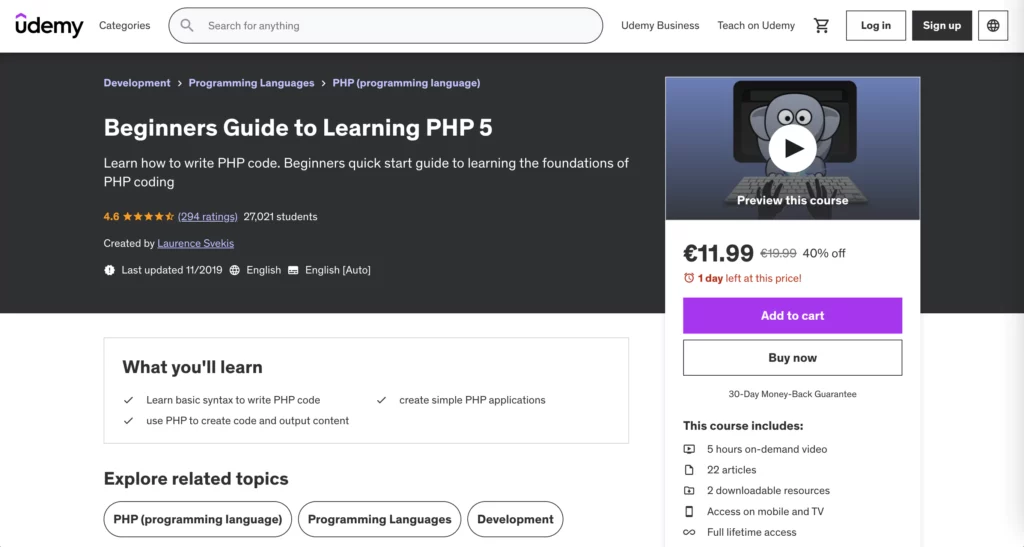
This 4.7-stared on Udemy will help you learn how to write PHP code. Just like other courses, it will help you be more comfortable with writing PHP by introducing what it is in a short while (only 5 hours). PHP developers will have a chance to explore the basic syntax used to create a PHP application.
Learners can access the source code, links to resources and information about how to set up resources. As a result, “Complete beginners guide to learning PHP” is suitable for beginners or anyone that loves to learn server-side scripting.
Basically, this course will guide you to:
- Setup a PHP environment.
- Apply comments on source code.
- Output PHP values.
- Learn how variable works.
- know what arrays are and how they can be used to hold value.
Those are only some significant lectures of this course, there are more to get familiar with so that your PHP development career could go stable. There might be some missing pieces, however, it can be seen that the lectors are updating the course regularly.
Rate: 4/5 (Some lessons are taught quite fast).
5. PHP The Right Way
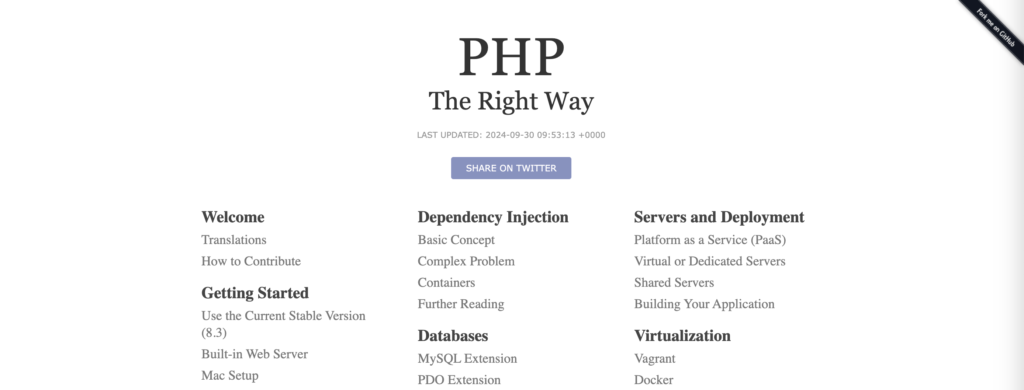
This is not a course, instead, the authors claim that the website provides a living document, which is updated frequently. While most of the resources merely help you understand the basics of using PHP, this website gives learners everything they ever need to know about PHP such as popular coding standards or some best practices at the moment.
On the one hand, the authors will suggest you various choices of tools for you to opt in. On the other hand, they will list out differences and examples of the advantages and disadvantages of those tools.
What’s more, this site is translated into multiple languages: Spanish, French, Indonesia, Turkey, etc.
In short, below are some of the sessions of the document:
- Language highlight
- Dependency management
- Coding practices
- Dependency injection
- Databases
- Templating
- Error and exceptions
- Security
- Testing
- Server and deployment
- Virtualization
- Caching
- Documenting
You can also get the book version that is available in PDF, EPUB, and MOBI here.
Rate: 4.5/5 (There are no assignments to practice while following this course).
Some additional PHP courses you might like:
We hope that these courses will satisfy the need for learning the PHP language and be able to guide you to a better software development career. In case you want to learn PHP by practicing it, let’s join us now! We are looking for a PHP developer who has at least one year of experience in PHP coding. You could read the detailed job description here.
If you are looking for a software outsourcing company, now is the right time to contact us! People at Designveloper offer a wide range of services such as web design, software development, and even business consulting! Tell us your ideas and we’ll realize them for you!






Read more topics
















































